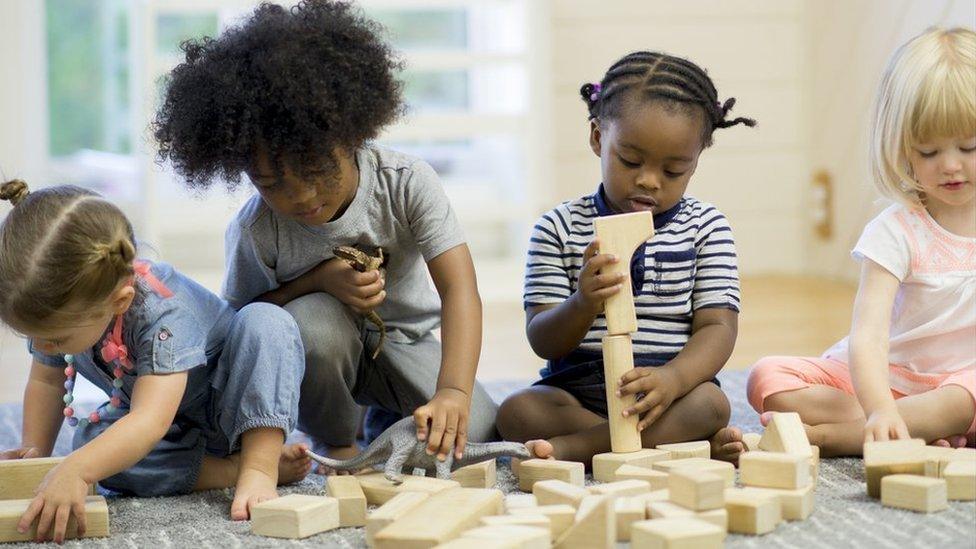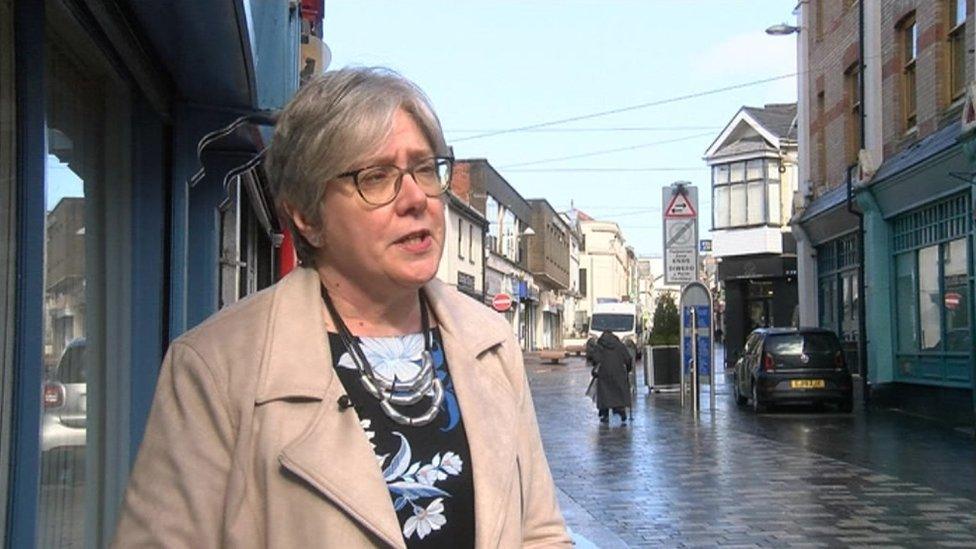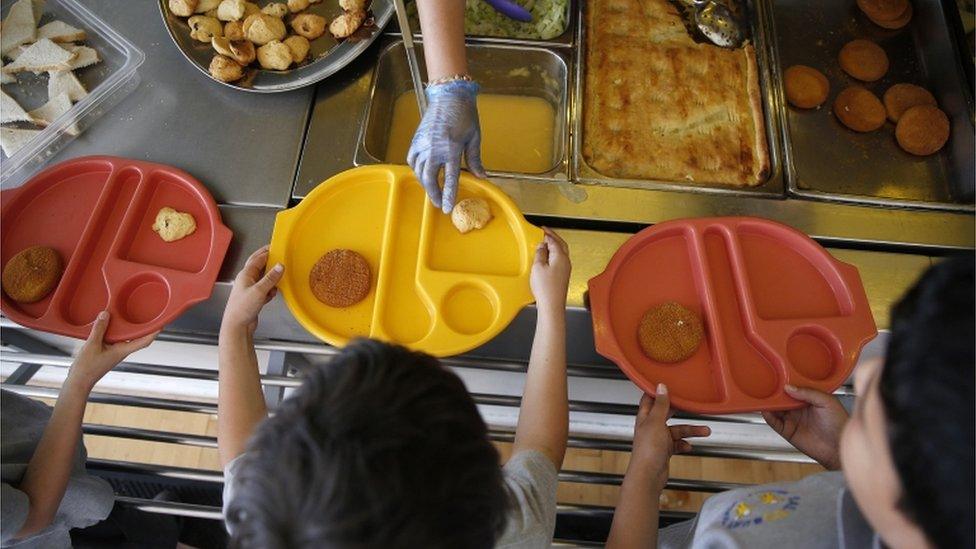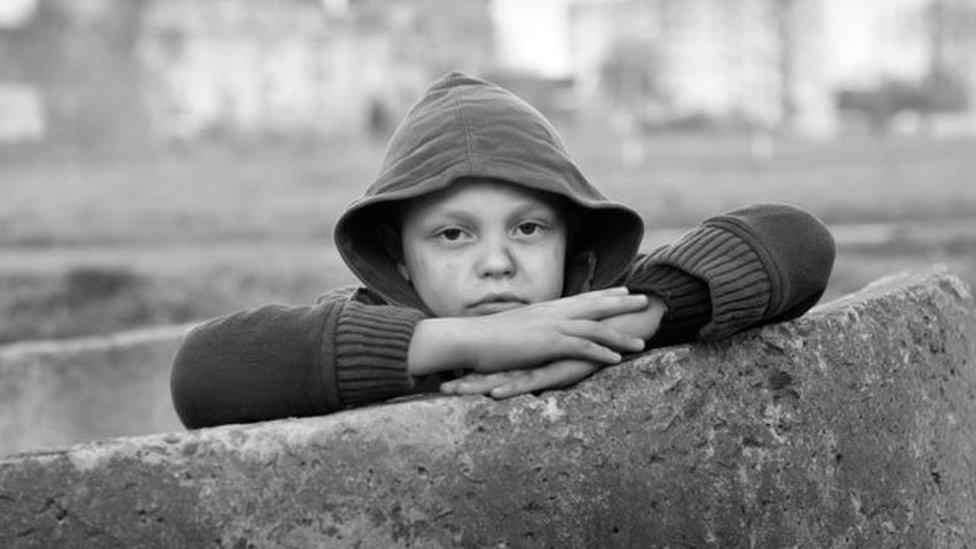Child poverty: Free childcare 'could help close wealth gap'
- Published

Thirty hours of free education and childcare are currently available to working parents of three and four-year-olds
Giving poorer families free childcare and help with housing costs could help close the "poverty gap" in school performance, according to a think tank.
Attainment of poorer pupils is consistently and significantly worse than their better-off classmates.
Victoria Winckler from the Bevan Foundation said the Welsh Government could do more to mitigate the causes.
A spokeswoman said it was doing "everything it can" to close the gap, including help with childcare costs.
New, more demanding teacher assessments of children in the foundation phase (ages three to seven) show a stark contrast between the attainment of pupils from poorer backgrounds and others.
About 64% of pupils eligible for free school meals achieved at least the expected outcome.
That is compared to just over 84% of other pupils.
Children are eligible for free school meals if their parents claim certain benefits.
In February the chief inspector of schools said the performance gap between pupils from less well-off homes and their classmates had not closed in the last decade.

Victoria Winckler says Welsh ministers "have a lot of influence on costs"
Ms Winckler told BBC Politics Wales: "The Welsh Government doesn't have all the policy levers, it doesn't control the tax and benefits system, but it does have a lot of influence on costs.
"Particularly on housing costs and on childcare costs and it can do a lot to support families and boost their incomes through those mechanisms.
Thirty hours of free education and childcare are currently available to working parents of three and four-year-olds.
Ms Winckler said Welsh ministers should cut the hours and make it available to all parents.
"A universal offer of around 15 hours a week from the age of one that is not dependent on parents being in work.
"So if parents want extra childcare and they're working they can pay for it, but that would then allow access for children from non-working parents or parents with several children of different ages.
"We think that would be much more effective in reaching lower income families."
On housing costs, she said there was "a lot more" Welsh ministers could do to mitigate problems she thinks were caused by the UK government's welfare reforms.
"They [the Welsh Government] operate a scheme called the discretionary assistance fund and the demand for that has absolutely rocketed.
"They are already helping people because it's in their interest to do so simply financially but also morally."
'Severe hardship'
The Welsh Government said it was doing everything it could "to close the gap, including helping people with the cost of childcare and with ensuring they have an affordable home to live in".
A spokeswoman said: "Welsh Government policies and initiatives such as free prescriptions, free school meals, the education maintenance allowance and a generous childcare offer means many Welsh families are more than £2,000 a year better off.
"We have consistently expressed deep concerns about the UK government's welfare reforms, including the flawed design of universal credit, which can tip vulnerable individuals into severe hardship."
Prime Minister Boris Johnson recently defended universal credit, saying it had helped 200,000 people into jobs.
However the UK Statistics Authority said the number was only an estimate for when the system was fully rolled out.
Politics Wales is on BBC One Wales on Sunday 15 March at 10:00 GMT and on the BBC iPlayer
- Published26 February 2020

- Published2 February 2020

- Published8 January 2020

- Published15 May 2019
